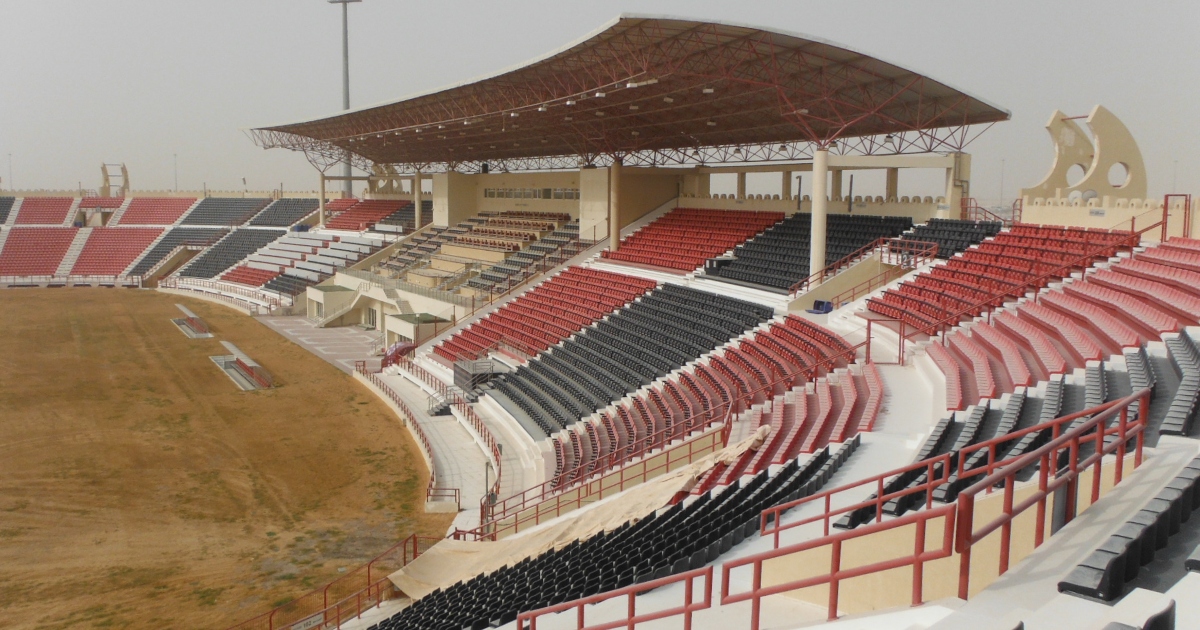

Visually stunning and culturally important, Al Rayyan Venue is the latest tournament venue to be unveiled for the FIFA World Cup Qatar 2022™ and one which symbolises the dawn of a new era for a proud, football-loving community.
Built on the site where Ahmed Bin Ali Stadium once stood, this spectacular 40,000-capacity venue will welcome the world in less than two years’ time, with the stadium slated to host seven matches during Qatar 2022 up to the round of 16 stage. It will be a particularly proud moment for supporters of Al Rayyan Sports Club, as they will have the opportunity to witness football’s showpiece event take place on their home turf.
Before the World Cup rolls into town, the Al Rayyan community will get their first glimpse of the stadium when it plays host to Al Sadd and Al Arabi in this year’s Amir Cup final on 18 December. The venue will become the fourth Qatar 2022 stadium to open following Khalifa International, Al Janoub and Education City.
As one of Qatar’s most historic cities, Al Rayyan is known for its love of tradition and culture. And it was those inspirations that Ramboll used in their design process for the stadium. The result is a venue that tells the story of Qatar in a spectacular way.
“Respecting the history of both Al Rayyan and Qatar was an important design objective,” said Ramboll Project Director, Alan Tweedie. “Our stadium architect, Pattern Design, spent considerable time at the conceptual stage researching the history and culture. This included investigating the history of the Al Rayyan region itself. We ended up presenting four conceptual options and the chosen design was in the end a mix of many attractive options within each of the distinct proposals.”
Tweedie added: “One of the key features of the final design is the five decorative patterns and shapes that are found within the stadium façade and around the precinct. These patterns acknowledge the importance of family in Qatari culture, they reflect patterns associated with the desert and wildlife that thrives there, and they also reflect historical patterns seen in Qatar that have their origin in the international trade that lies behind Qatar's economic success over the centuries. The shield pattern, associated with Al Rayyan itself, weaves together all of the other patterns and represents loyalty, unity and perseverance.”
To fully incorporate the history and traditions of the community in the project, Ramboll also developed a relationship with Al Rayyan Sports Club – which will occupy the venue in future – to ensure the legacy aspect of the new stadium was properly planned.
“We spent time with Al Rayyan SC in order to understand how they operated, what worked well for them and where they would like to see improvements reflected within the stadium’s legacy,” said Tweedie. “We had the privilege of attending the last Al Rayyan home game, as VIP guests, before the old stadium was decommissioned – a game we are glad to report Al Rayyan won. This created a bond between the club and the designers, which reminded us during the various design stages that we were in fact designing the club's new home, not just a venue for a four-week long tournament.”
The sense of achievement in bringing Al Rayyan Venue to reality is a milestone that will be shared proudly by all of the project’s stakeholders, including Ramboll, who are celebrating their 75th anniversary as a company this year.
“One of the most exciting aspects of a project like this is the ability to attend an event and experience the reaction of the end users, who are in this case, the fans,” Tweedie said. “If they attend an event and are enthusiastic about the event and the project, then this is something to be excited about. This means you have succeeded in one of your primary objectives.”

